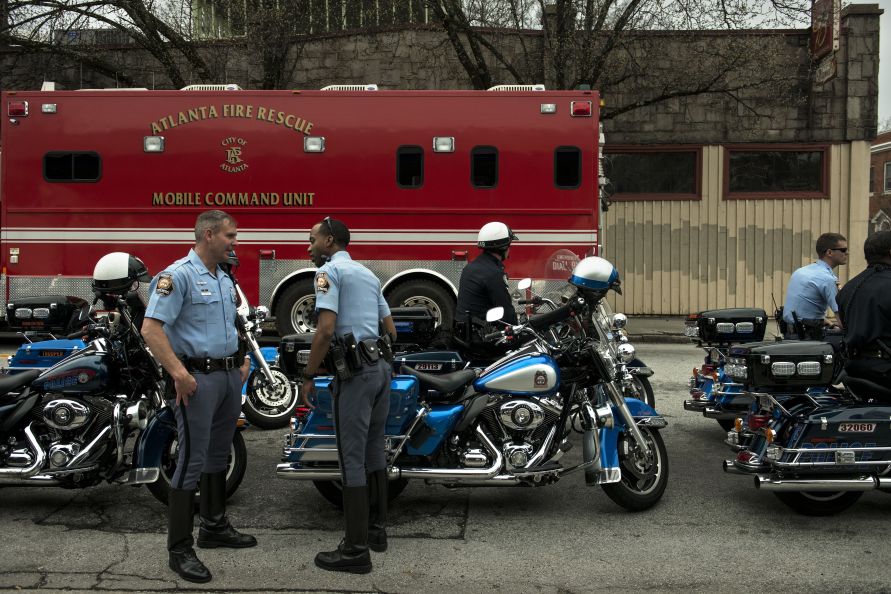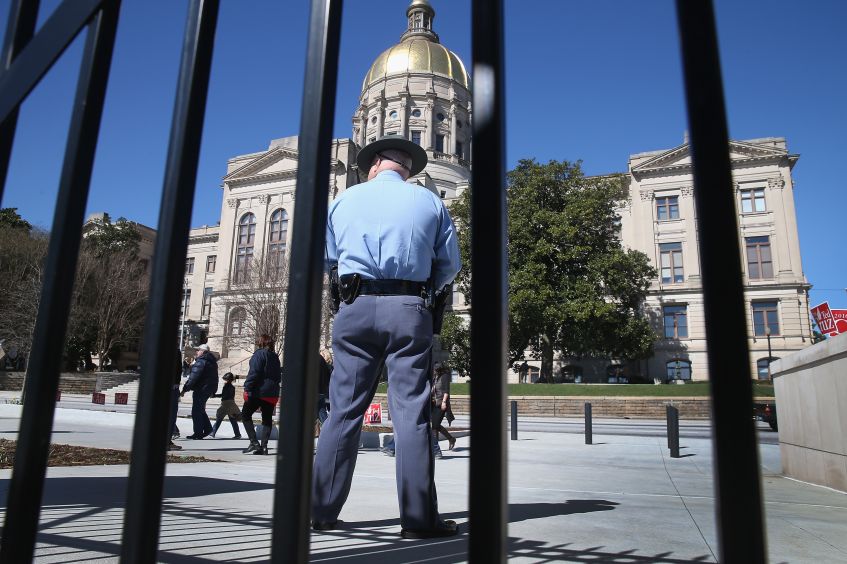Calling the police is one of those moments in life where you need immediate help, and people often wonder why some situations require contacting law enforcement. If you've ever asked yourself, "Why do people call the police 12 times a day?" or something similar, you're not alone. This question dives deep into the role of police in society, the types of emergencies they handle, and the importance of knowing when to dial that number. So, let's get into it, shall we?
Think about it—police officers are like the superheroes of our everyday lives. They deal with everything from stolen bikes to serious crimes. But why do people call the police so often? Is it always necessary? Or are there instances where other resources might be better suited? In this article, we'll explore the reasons behind those calls and help you understand the importance of using emergency services responsibly.
Before we dive into the specifics, let's address the elephant in the room. Calling the police isn't just about crime. It's about safety, protection, and ensuring that everyone feels secure in their community. Whether it's a noise complaint, a missing pet, or a life-threatening situation, the police are there to respond. But how do we know when it's the right time to make that call? Let's find out.
Read also:Kaitlyn Krems Onlyfans The Rise Of A Digital Sensation
Understanding the Role of Police in Society
Police officers are more than just enforcers of the law. They serve as protectors, mediators, and sometimes even counselors. When people ask, "Why do people call the police 12 times a day?" it's essential to recognize the wide range of responsibilities these professionals have. From handling domestic disputes to managing traffic accidents, police officers are on the front lines of public safety.
What Situations Warrant a Police Call?
Not every issue requires law enforcement intervention. However, certain situations demand immediate attention. Here are some examples:
- Life-threatening emergencies like shootings or stabbings
- Crimes in progress, such as burglaries or robberies
- Missing persons reports
- Domestic violence incidents
- Drunk driving or reckless behavior on the road
These situations highlight the importance of having a reliable emergency response system. But what happens when people misuse the system by calling for non-urgent matters? Let's explore that next.
Why Do People Call the Police for Non-Emergencies?
Let's be real—sometimes people call the police for things that don't really require their attention. It's not always malicious; often, it's a lack of awareness about alternative resources. For instance, someone might call the police because their neighbor's music is too loud, when a simple conversation could resolve the issue. Or they might call because their dog went missing, not realizing that local animal control might be a better option.
The Impact of Misusing Emergency Services
Misusing emergency services can have serious consequences. When police officers are tied up with non-urgent calls, it delays their ability to respond to genuine emergencies. This creates a ripple effect that can put lives at risk. So, how can we ensure that we're using these services responsibly?
Education is key. Communities need to be informed about the proper use of emergency numbers and the availability of alternative resources. By doing so, we can reduce the strain on law enforcement and ensure that they're available when they're truly needed.
Read also:Kali Woodruff Carr The Rising Star Redefining Entertainment
The Importance of Knowing When to Call
Understanding when to call the police is crucial. It's not just about knowing the number; it's about recognizing the severity of the situation. For example, if you see someone breaking into a car, that's a clear-cut reason to call. But if you're upset about a parking ticket, it might not be the best use of police resources.
Signs That It's Time to Dial
Here are some signs that it's time to call the police:
- You witness a crime in progress
- Someone is in immediate danger
- There's a threat to public safety
- You need assistance with a missing person
- A serious traffic accident occurs
Remember, it's always better to err on the side of caution when it comes to safety. If you're unsure, trust your instincts and make the call.
Statistics on Police Calls
Did you know that police departments across the U.S. receive millions of calls every year? According to the Bureau of Justice Statistics, law enforcement agencies handle approximately 240 million 911 calls annually. While not all of these are emergencies, a significant portion requires immediate attention. This highlights the critical role that police officers play in maintaining public safety.
Breaking Down the Numbers
Let's take a closer look at the types of calls police receive:
- 30% involve crimes in progress
- 20% relate to traffic incidents
- 15% deal with domestic disputes
- 10% involve missing persons
- 25% are non-urgent matters
These statistics underscore the need for better education and resource allocation. By reducing the number of non-urgent calls, we can free up police officers to focus on more critical issues.
Alternatives to Calling the Police
While the police are an essential part of the emergency response system, there are times when other resources might be more appropriate. For example, if you're dealing with a mental health crisis, a local crisis hotline might be a better option. Similarly, animal control is often better equipped to handle pet-related issues.
Community Resources to Know
Here are some alternative resources to consider:
- Local mental health hotlines
- Animal control services
- Community mediation programs
- Non-profit organizations specializing in specific issues
By utilizing these resources, we can reduce the burden on law enforcement and ensure that each call is handled by the most appropriate party.
The Role of Technology in Emergency Response
Technology has revolutionized the way we interact with emergency services. From text-to-911 capabilities to mobile apps that connect users with local resources, there are more tools than ever to help people get the assistance they need. These advancements not only improve response times but also make it easier for people to access the right resources.
How Technology Can Help
Here are some examples of how technology is enhancing emergency response:
- Text-to-911 for those unable to speak
- Mobile apps that provide real-time updates on emergencies
- Online platforms for reporting non-urgent issues
As technology continues to evolve, we can expect even more innovative solutions to emerge. This will help ensure that everyone has access to the support they need, when they need it.
Building Trust Between Communities and Law Enforcement
Trust is the foundation of any successful relationship, including the one between communities and law enforcement. When people feel confident in the police's ability to protect and serve, they're more likely to reach out when necessary. However, trust is not built overnight; it requires consistent effort and transparency from both sides.
Steps Toward Building Trust
Here are some ways communities and law enforcement can work together to build trust:
- Community policing initiatives
- Regular town hall meetings
- Transparency in reporting and accountability
By fostering open communication and collaboration, we can create a safer, more supportive environment for everyone.
Conclusion: Why Do People Call the Police 12 Times a Day?
At the end of the day, the question "Why do people call the police 12 times a day?" comes down to one thing: the need for safety and security. Whether it's a serious crime or a minor inconvenience, people turn to law enforcement because they trust that officers will respond appropriately. However, it's important to remember that not every issue requires a police call. By using resources responsibly and educating ourselves about alternative options, we can ensure that our emergency services are available when they're truly needed.
So, the next time you're considering calling the police, take a moment to assess the situation. Is it an emergency? Are there other resources that might be better suited? By asking these questions, you can help ensure that our emergency response system remains strong and effective.
And don't forget—your voice matters. Share this article with your friends and family, and let's work together to build safer, more informed communities. Together, we can make a difference!
Table of Contents
- Understanding the Role of Police in Society
- Why Do People Call the Police for Non-Emergencies?
- The Importance of Knowing When to Call
- Statistics on Police Calls
- Alternatives to Calling the Police
- The Role of Technology in Emergency Response
- Building Trust Between Communities and Law Enforcement
- Conclusion: Why Do People Call the Police 12 Times a Day?


